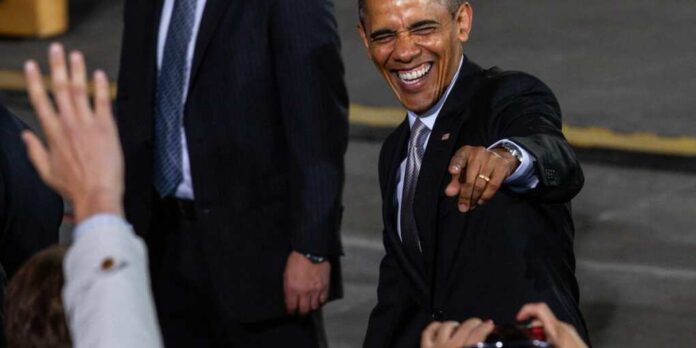
In a moment that stunned CNN’s primetime audience, Brett McGurk, a former Biden White House National Security Council official, praised President Donald Trump’s handling of the Iran-Israel conflict, calling it “about the best place we can be.” His comments come just days after Trump brokered a ceasefire between Iran and Israel following weeks of rising tensions and missile exchanges.
McGurk, who also served under Obama, told “Anderson Cooper 360” that Trump and his national security team deserve “extremely high marks” for navigating the high-stakes confrontation. This rare cross-party praise signals growing bipartisan recognition of Trump’s ability to de-escalate an increasingly volatile Middle East flashpoint without triggering a broader war.
Backchannel Diplomacy and Precision Strikes
Trump’s move to order U.S. strikes on Iranian nuclear sites, followed by swift ceasefire negotiations, surprised critics. According to McGurk, the U.S. response was carefully calibrated to avoid spiraling into open conflict. “The American strike was turn one,” McGurk explained, referencing the escalation ladder that had developed after Israel’s initial preemptive strike on June 12.
Iran’s missile retaliation on the Al Udeid base in Qatar was, according to McGurk, “not a real response” but a choreographed and telegraphed show of force, largely neutralized by U.S. and Qatari defenses. Trump later confirmed that Iran had provided early warning of the strike, allowing the U.S. to avoid casualties and proving that Tehran was seeking a face-saving way to back down.
Ceasefire in Effect—and Diplomacy in Motion
The ceasefire, which began with Iran’s commitment to halt hostilities followed by Israeli compliance “upon the 12th hour,” now appears to be holding. Trump announced it on Monday via Truth Social, calling it a success and urging both sides to “stay cool.”
McGurk confirmed that ongoing diplomatic efforts, including those in Cairo with Hamas delegations, could extend the ceasefire’s benefits into Gaza and beyond. “There’s a chance for diplomacy here,” he said, highlighting behind-the-scenes negotiations that could stabilize multiple regional hotspots.
Europe Watching, Sanctions Looming
Beyond the battlefield, McGurk warned that the diplomatic window could close if Iran fails to comply. He noted that European powers are preparing to “snap back” sanctions if no progress is made by October, adding pressure on Tehran to hold to its promises.
Nonetheless, McGurk framed the situation as a win. “This is about the best place we can be,” he told Cooper. “Let’s follow through.”
Trump’s Strategy vs. Conventional Wisdom
The bipartisan respect Trump is receiving over the Iran crisis stands in sharp contrast to media narratives that painted his approach as reckless or impulsive. In fact, Trump’s decisions—striking hard targets, avoiding escalation, and opening diplomatic backchannels—reflect the same principles of strength and unpredictability he touted in his first term.
And McGurk’s approval isn’t just a partisan anomaly. His comments reflect growing recognition, even among establishment figures, that Trump’s strategy achieved its goals: stopping the escalation, asserting American strength, and re-establishing deterrence without plunging into a war.
Conclusion: Results Matter
Trump’s approach to Iran has now delivered something few expected—a total ceasefire endorsed by both sides, minimal American casualties, and praise from critics who once dismissed his foreign policy chops. McGurk’s remarks could mark a turning point in how even the mainstream media is forced to evaluate Trump’s leadership during moments of global crisis.
As the dust settles, it’s clear that even some of Trump’s fiercest policy adversaries are beginning to admit: when it comes to peace through strength, the results speak for themselves.












